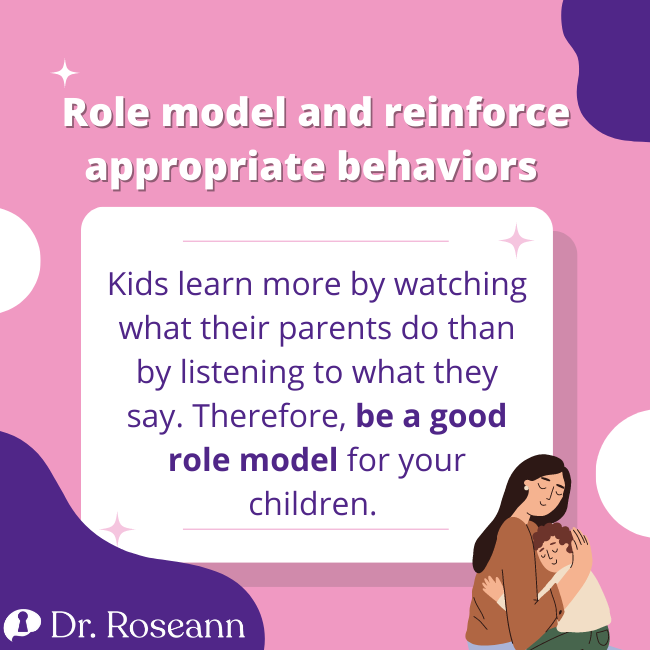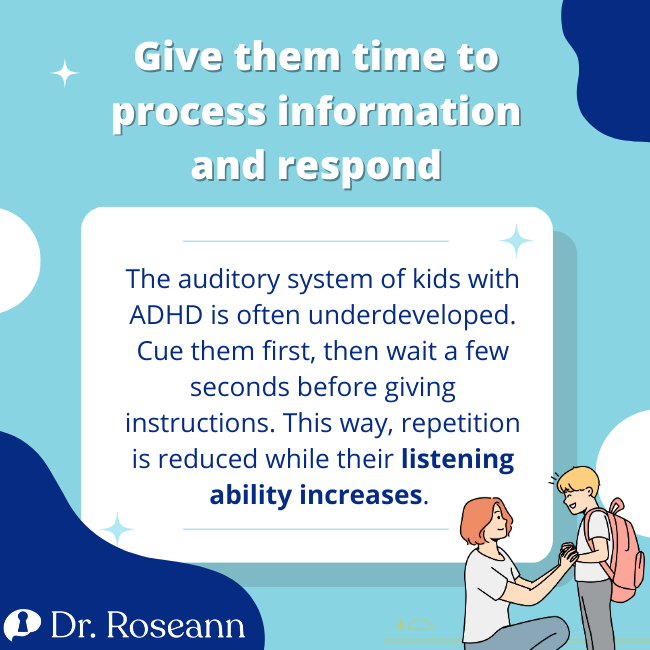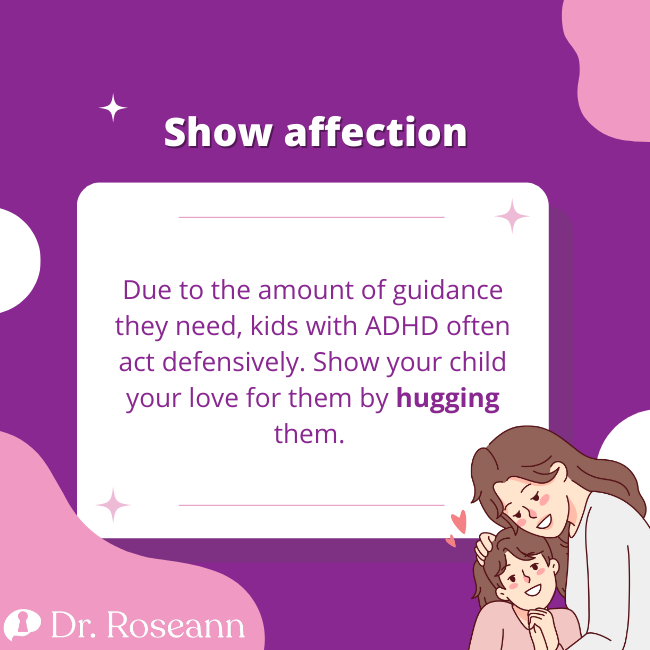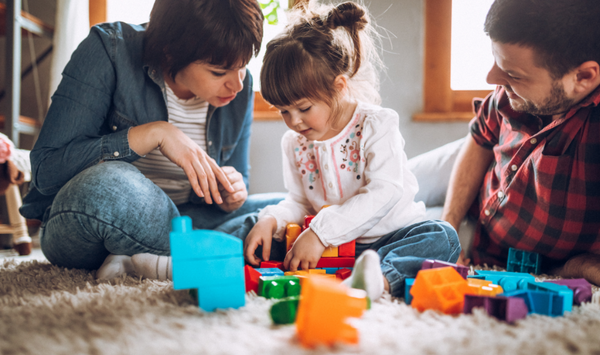
ADHD, or Attention-Deficit Hyperactivity Disorder, is characterized by difficulties with impulse control, inattention, and hyperactivity. Self-regulation is also an issue for kids with this neurological disorder. As a result, it affects their emotional well-being, behavior, social skills, and academic performance.
Parents need much love and understanding to support their kids with ADHD. Below are some valuable tips parents can use to help their kids succeed in school, get along with others, and accomplish their daily goals.
12 Must Read Parenting Tips For Kids With ADHD
*This article may contain affiliate links*
1. Offer Some Supervision But Allow Them To Fail
As scary as it sounds, parents should shift to autonomy-supportive parenting. This parenting style exposes children to problem-solving experiences that promote their independence. Through failure, they learn coping skills and stress tolerance.
2. Always Use Positive Language
It’s challenging to parent a child who doesn’t seem to be listening. The use of positive language helps a child learn better. But more importantly, it strengthens the bond between parent and child.
In the same way, parents should stop thinking negatively about their children, particularly regarding laziness. When kids with ADHD aren’t sure how to begin a task, they may become unmotivated. Getting them started and guiding them throughout makes all the difference.
3. Model and Reinforce Appropriate Behaviors

Kids learn more by watching what their parents do than by listening to what they say. Therefore, be a good role model for your children. Children with ADHD are often told what they should not do instead of showing them what they should do.
By constantly telling the child what they shouldn’t do, they fail to focus and learn the appropriate behavior. So, use the word “don’t” only when discussing safety. That way, their brain becomes more alert when it hears that word.
READ MORE: Incredible Strategies for Positive Parenting Children With or Without ADHD Effortlessly!
4. Adapt Logical and Natural Consequences
Many kids today lack problem-solving skills because of helicopter parenting. Kids learn problem-solving and coping skills best through natural consequences. With that said, always think about teaching and not punishment.
Most kids don’t act the way they do on purpose. Children are not trying to manipulate you but are expressing their feelings and thoughts. You can’t teach a kid how to behave through punishment. Focus instead on reinforcing the right behaviors.
5. Provide Clear Instructions
Some kids with ADHD are naturally bright. But they still need to understand the micro steps that lead to significant results. Don’t assume that they know everything. Give them clear instructions instead. It would be beneficial to have a daily structure or routine. Predictable systems and patterns help kids learn the simple things they need to do.
6. Give Them Time to Process Information and Respond

The auditory system of kids with ADHD is often underdeveloped. Cue them first, then wait a few seconds before giving instructions. This way, repetition is reduced while their listening ability increases.
Remember not to expect perfection in these kids, as they are naturally gifted in different ways. When you try to put their developing brains into boxes, all it accomplishes is stall their creativity and limit their potential.
7. Stop and Review
Stop and review what your child is doing and where they’re going. Doing so helps them complete a task faster and more accurately. Then, act like a detective and investigate the child’s problematic behaviors.
Determine the contributors and antecedents of their problem behaviors before trying to resolve them. All children use behavior as their language. Be sure to identify the why behind their complex behaviors to address them appropriately.
8. Show Affection

Due to the amount of guidance they need, kids with ADHD often act defensively. Show your child your love for them by hugging them. Also, a little bit of humor can manage behavioral and emotional dysregulation. Humor is an excellent stress reliever. Parenting with humor can increase joy and reduce stress.
READ MORE: How to Effectively Practice Positive Parenting with a Child with ADHD
9. Create Clear and Consistent Boundaries
Consistent boundaries give kids the reinforcement they need to learn, even when they push back. Additionally, clear boundaries provide structure and clarity. But before setting a limit, make sure it’s developmentally appropriate for them. The goal is to set up your child for success, not make them struggle with limitations.
10. Let Them Experience Emotions
It is through discomfort that kids learn to tolerate emotions. So for kids to learn self-regulation and coping skills, allow them to experience various emotions. But remember to share some calm, too. It is important to remember that kids co-regulate with you. It means that if you’re anxious, so are they.
The only way to meet your children’s emotional needs is to support your own. Remember that your child will mirror your behaviors, especially if you yell and get upset quickly. Make self-care a priority and engage your child in brain-calming activities. For this, CALM PEMFTM can help.
11. Limit Screen Time
Excessive screen time is associated with many behavioral issues. Increased device usage means less interpersonal playing. Since play is vital in all spheres of a child’s development, reduced play may cause children to develop differently. With interactions with other children, your child will be able to recognize emotions and be more considerate of others.
12. Promote Unstructured Play and Risky play
Children can learn listening, cognitive, behavioral, attentional, motor, socio-emotional, and sensory skills through play. In addition, play enhances their creativity, memory, self-control, self-esteem, affection, and positive self-image.
For example, unstructured play allows children to play leisurely and practice creativity. On the other hand, risky play, which may involve tree climbing, parkour, and lifting heavy objects, will improve their motor, problem-solving, and learning skills.
Author Bio:
Dr. Roseann is a Children’s Mental Health Expert and Therapist who has been featured in/on hundreds of media outlets including, CBS, NBC, FOX News, PIX11 NYC, The New York Times, The Washington Post,, Business Insider, USA Today, CNET, Marth Stewart, and PARENTS. FORBES called her, “A thought leader in children’s mental health.”
She is the founder and director of The Global Institute of Children’s Mental Health and Dr. Roseann Capanna-Hodge. Dr. Roseann is a Board Certified Neurofeedback (BCN) Practitioner, a Board Member of the Northeast Region Biofeedback Society (NRBS), Certified Integrative Mental Health Professional (CIMHP) and an Amen Clinic Certified Brain Health Coach. She is also a member of The International Lyme Disease and Associated Disease Society (ILADS), The American Psychological Association (APA), Anxiety and Depression Association of America (ADAA) National Association of School Psychologists (NASP), International OCD Foundation (IOCDF) International Society for Neurofeedback and Research (ISNR) and The Association of Applied Psychophysiology and Biofeedback (AAPB).
© Roseann-Capanna-Hodge, LLC 2023
Keep this article for reference by adding any of the images below to your favorite Pinterest Boards!



